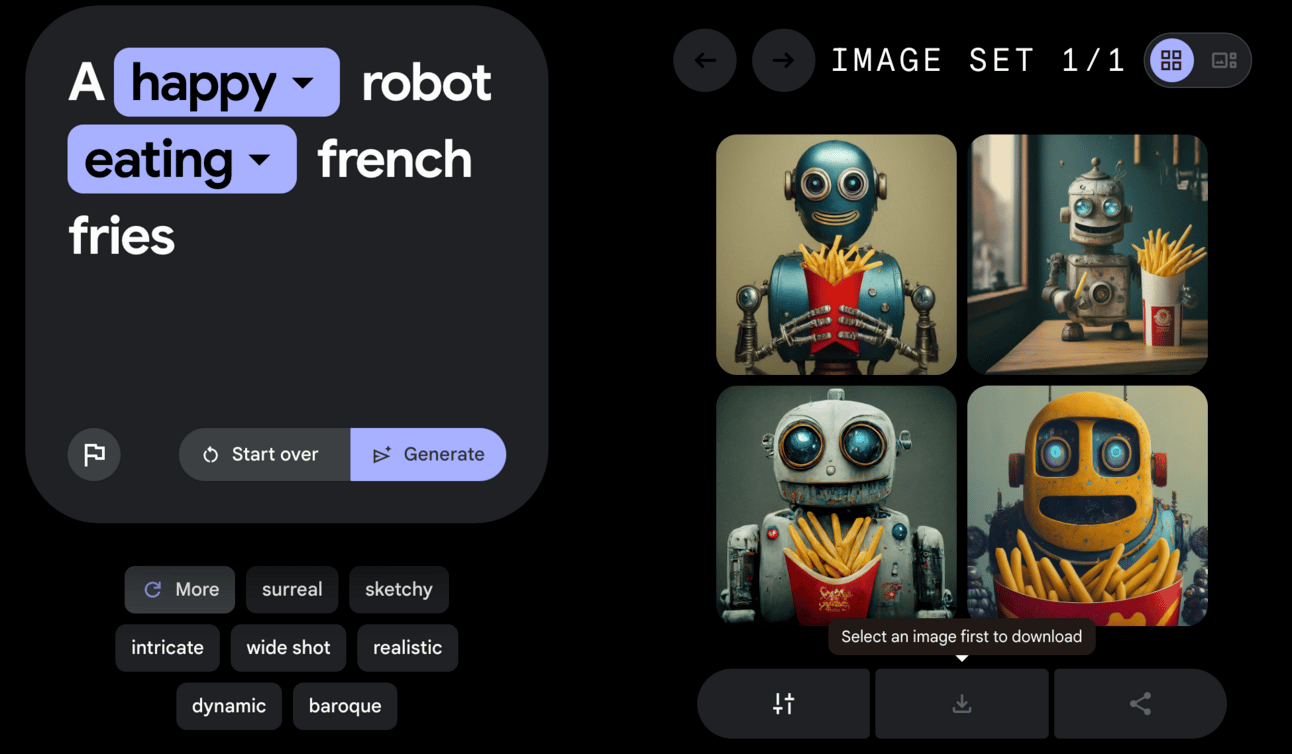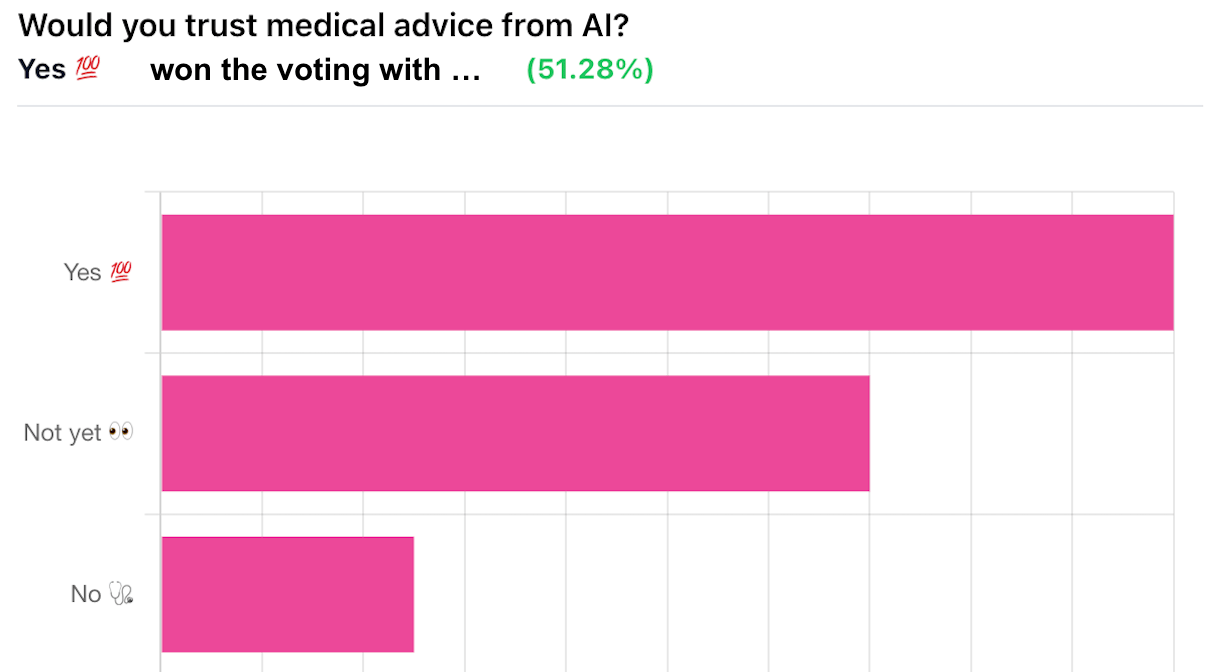
Happy FRY-day! We are here to help you celebrate the end of the week by giving you the hottest AI updates and resources. 🔥
🤯 MYSTERY AI LINK 🤯
(The mystery link can lead to ANYTHING AI related. Tools, memes, articles, videos, and more…)
Today’s Menu
Appetizer: Google’s new image generation tool 🦾
Entrée: Mastercard uses AI to detect fraud 💰
Dessert: Making AI-driven robocalls illegal (again) 🤔
🔨 AI TOOLS OF THE DAY
🏖️ Beach Atlas: Use AI to find the best local beaches. → check it out
💰 Creatopy: Generate creative ads for any website using just the URL. → check it out
📝 Formix: The ultimate form-filling assistant. → check it out
GOOGLE’S NEW IMAGE GENERATION TOOL 🦾

Created using ImageFX, Google’s new free image generation tool
All photos in today’s newsletter are generated using ImageFX! 😍
What’s new? Google’s chatbot, Bard, has introduced AI image generation.
Want details? Bard’s image generation is powered by Imagen 2 at no additional cost, unlike the subscription-based ChatGPT Plus which has offered similar features for months. In response to recent controversies surrounding AI-generated explicit content, Google has implemented features which promote responsible AI usage. Bard’s images bear a watermark by SynthID, and technical safeguards aim to prevent the creation of explicit or offensive content.
Want a bonus? Google has also released an experimental image generation tool called ImageFX, also powered by Imagen 2, which allows users to create images using text prompts. Just like with Bard, all the pictures made with ImageFX will be watermarked and adhere to appropriate guardrails. ImageFX joins Google’s other AI creation tools, MusicFX and TextFX, which launched last year in Google’s Test Kitchen.
MASTERCARD USES AI TO DETECT FRAUD 💰

Police: Why didn’t you report your stolen credit card?
Man: Because the thief was spending less than my wife.
Police: Then why are you reporting it now?
Man: Well, I think now the thief’s wife has started to use it.
What’s up? Mastercard is introducing a new AI fraud-detection model called, Decision Intelligence Pro.
How does it work? This neural network, crafted in-house by Mastercard’s cybersecurity and anti-fraud teams, is aimed at assisting banks in real-time assessment of potentially suspicious transactions on its network. The model utilizes transformer and open-source elements, drawing on the company’s vast transaction data—approximately $125 billion annually. Mastercard’s algorithm focuses on customer-merchant relationships, utilizing a cardholder’s history to predict transaction legitimacy in a rapid, 50-millisecond process.
Is it effective? The transformative technology has reportedly increased fraud detection rates by 20% on average, with some cases boasting a remarkable 300% improvement.
MAKING AI-DRIVEN ROBOCALLS ILLEGAL (AGAIN) 🤔

15 funny phone numbers to call if you’re bored or want a laugh! 😆
What’s new? The Federal Communications Commission (FCC) is proposing a fundamental prohibition on the use of robocalls, in hopes of making it easier to prosecute the perpetrators.
Why? While robocalls are generally illegal, some automated calls serve legitimate purposes. However, the recent incident of deepfake Biden calls in New Hampshire, which urged voters not to participate in the primary election, prompted the state's attorney general to label them as an “unlawful attempt to disrupt the New Hampshire Presidential Primary Election.” The FCC believes that the need to wait for a crime to be committed before authorities intervene highlights a gap in addressing potential threats and seeks a more proactive approach.
What is the proposal? The proposed Declaratory Ruling seeks to clarify the status of cloned voices, ensuring they fall under the existing prohibition on “artificial” voices, as outlined in the Telephone Consumer Protection Act (TCPA).
Will this do anything? Many experts think this attempt simply highlights the confusion of lawmakers in handling AI systems. As Devin Coldewey from TechCrunch reports, “Don’t be surprised if it isn’t entirely clear what is and isn’t illegal, or why despite being obviously illegal, some calls or scams seem to operate with impunity. It’s a work in progress.” Ultimately, this move seems more like a scare tactic than a proactive attempt to eliminate AI-driven robocalls, but it is nonetheless a small step forward towards preventing misinformation.
FRY-AI FANATIC OF THE WEEK 🍟

Congrats to our subscriber, Jack! 🎉
Jack gave us a fresh and crispy and commented, “Love the content.”
(Leave a comment for us in any newsletter and you could be featured next week!)
YESTERDAY’S POLL RESULTS 📊

HAS AI REACHED SINGULARITY? CHECK OUT THE FRY METER BELOW

The Singularity Meter drops 2.0%: The FCC looks to criminalize AI RoboCalls (NBC News)